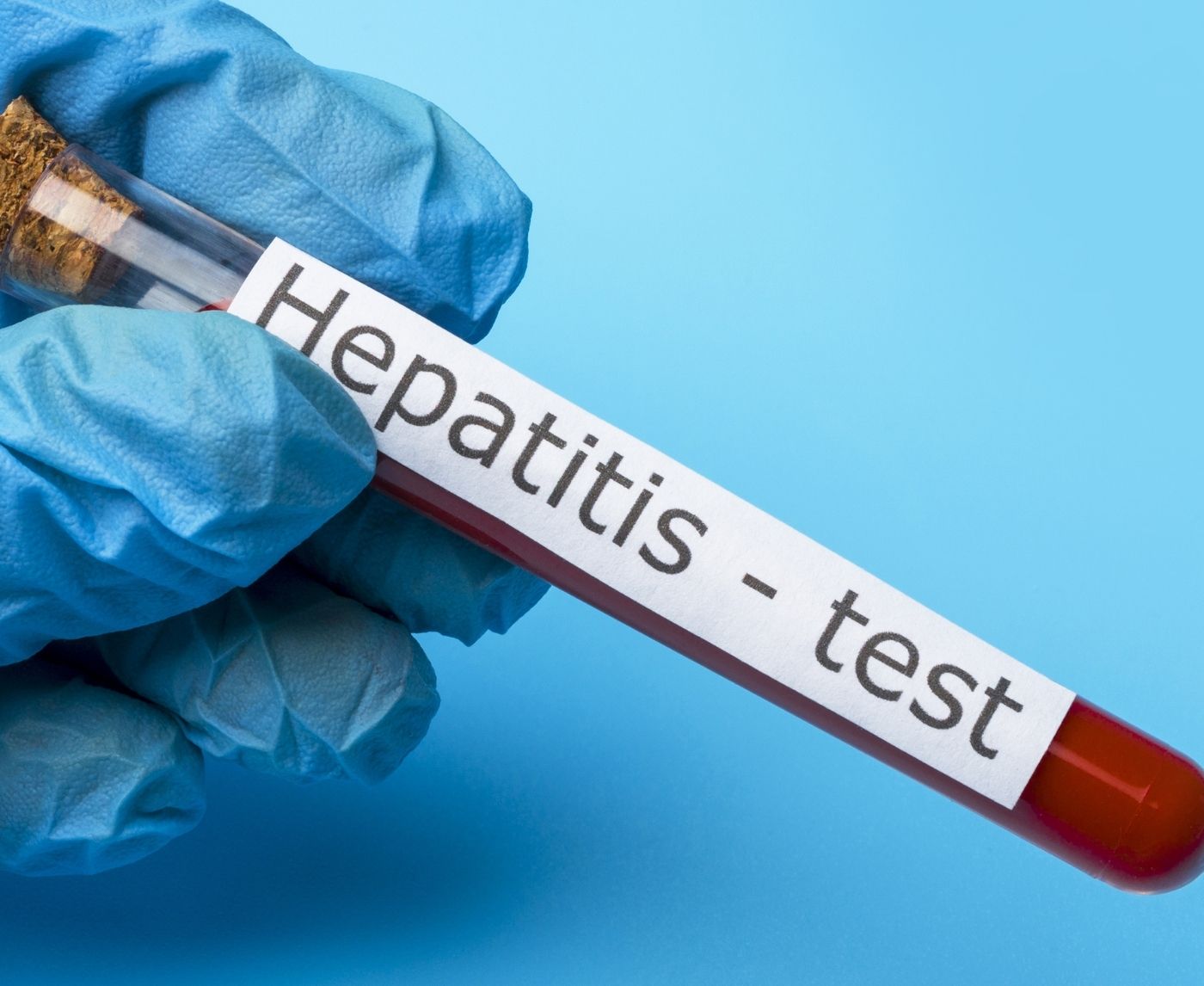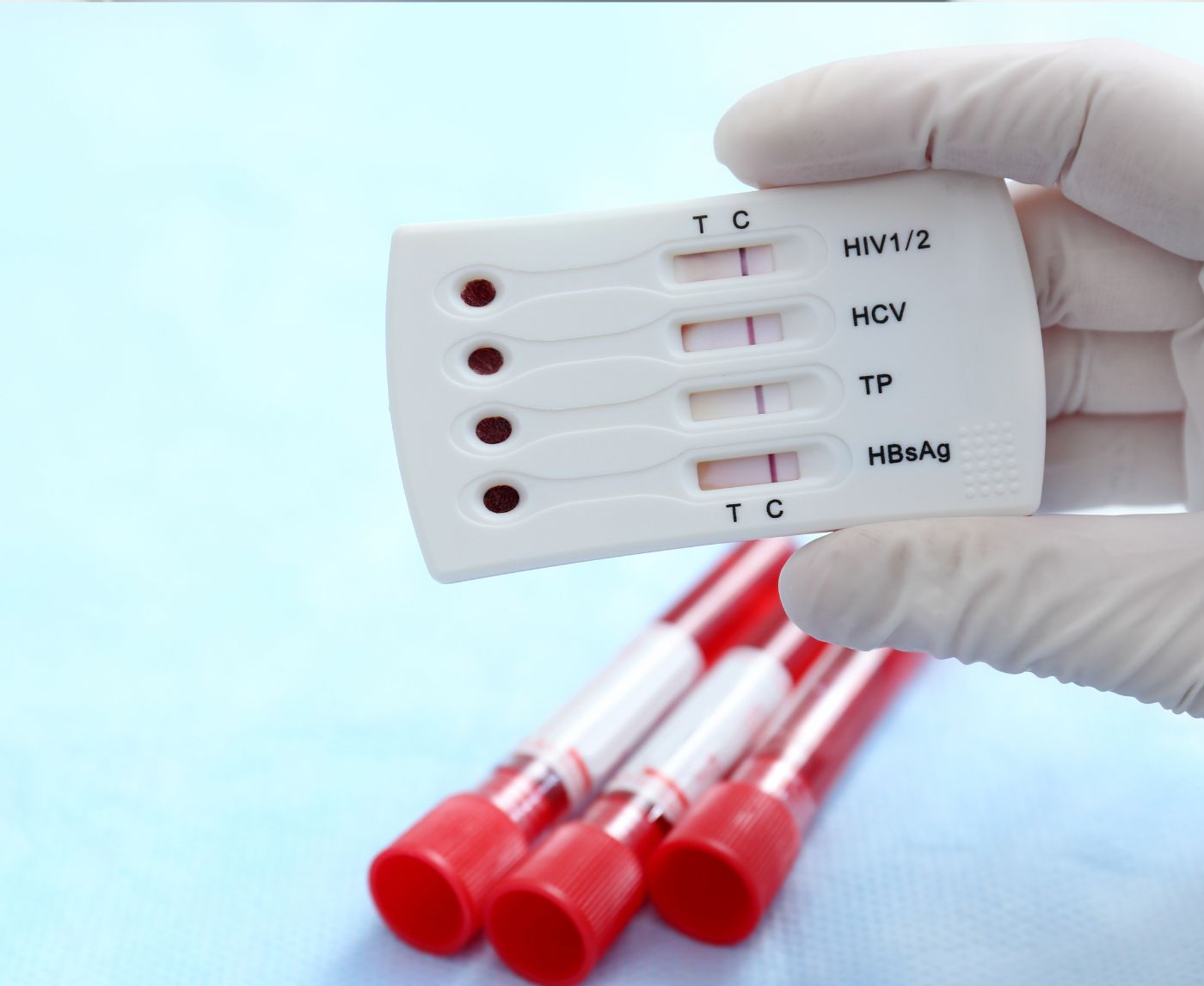Think You Have HIV? Why Testing Too Early Can Backfire
Quick Answer: Yes, you can get Hepatitis B from oral sex, especially if your partner is an asymptomatic carrier. It only takes microscopic blood or semen contact with broken skin, cuts, or mucous membranes.
When Silence Is a Symptom Too
The thing about Hepatitis B is that it’s a master of disguise. According to the CDC, nearly 70% of infected adults show no symptoms at all in the early stages. That means your partner could carry the virus and feel completely fine, no fever, no fatigue, no idea. And still pass it on.
This isn't rare. In fact, asymptomatic carriers are one of the main engines of ongoing HBV transmission worldwide. A study published in the Journal of Clinical Virology found that people without symptoms were often just as infectious as those with visible signs, especially during oral-genital contact involving semen or small cuts in the mouth.
Let that sink in. Your partner could be completely symptom-free, look perfectly healthy, and still carry enough viral load to infect someone during a blowjob.
There’s this fantasy we carry, if they look good, if they’re educated, if they “don’t sleep around,” then we’re fine. But viruses don’t care about vibes. They care about biology. And when it comes to oral sex, especially unprotected, biology can be messy.
Here’s the part most people don’t realize: oral sex isn’t risk-free. It’s just...lower risk. That “lower” can feel comforting until it happens to you.
Let’s break it down. Hepatitis B spreads through blood, semen, and vaginal fluids. It only takes a tiny amount, so small you can’t see it, with a tiny entry point you didn’t know you had. A nick on your gums. A scratchy throat. A bit of dental work. Even vigorous brushing can leave behind microabrasions that give HBV a free pass into your bloodstream.
The World Health Organization confirms that oral transmission is possible, especially if one partner has oral sores or bleeding gums, and the other is shedding virus through semen or genital secretions.
If your partner ejaculates in your mouth, or even pre-ejaculates, you’re taking on more risk. If they’re uncircumcised, that risk rises. If you have canker sores or gingivitis? Risk rises again. These factors don’t cancel each other out. They stack.
One moment of contact. One minor wound. One asymptomatic carrier. That’s all it takes.

People are also reading: Think It’s Just a Skin Thing? Syphilis Rashes Are Trickier Than You Think
The Myth of “He Looked Healthy”
I can’t tell you how many patients have said this to me:
“He seemed clean.” “She was normal.” “They didn’t look like the kind of person who would have something.”
Let me say this plainly: there is no such thing as a visible STD test. Clean is not a look. Infection is not a personality trait.
Hepatitis B is particularly deceptive because of its latency. In some people, it incubates for up to 180 days. That’s half a year before symptoms might even show up. And even when they do, they often mimic basic fatigue or a mild cold. It doesn’t always announce itself with drama or liver failure. Sometimes it whispers. Sometimes it stays silent for decades.
The CDC estimates that over 800,000 people in the U.S. are living with chronic Hepatitis B, many of them completely unaware. Globally, that number explodes to nearly 300 million, according to HepB.org.
So no, it’s not about who they are. It’s about what you can’t see.
The brutal irony of Hepatitis B is that it’s one of the most contagious STDs on the planet, and yet so many people have no clue they’ve got it. Compared to HIV, HBV is estimated to be 50 to 100 times more infectious, according to the World Health Organization. That means you’re not just rolling the dice when you skip protection during oral sex, you’re playing with a stacked deck.
What most people don’t realize is that the virus doesn’t need intercourse to make its move. It just needs the right conditions: blood-to-mucosa, semen-to-wound, even saliva if it’s tinged with blood. And if the person you're with hasn’t been tested, because they had “no reason to be”, they might be carrying something they didn’t ask for either.
In a 2021 peer-reviewed study on sexually active men, researchers detected HBV DNA in the saliva of 52% of participants who were otherwise asymptomatic. That means more than half of people who felt totally fine were still biologically capable of infecting someone through their mouth. Still think oral is risk-free?
Now add in factors like mouth ulcers, flossing injuries, or post-dental work exposure, and it becomes clear: oral sex is only “safe” when you have all the facts and take the right steps. Ignorance doesn’t protect you. Knowledge does.
Wait, So What Are the Symptoms, If There Are Any?
Let’s get into what you might feel if you’ve picked up Hepatitis B. Spoiler alert: many people never connect the dots until it’s already in chronic territory. But if symptoms do show, they typically arrive anywhere from six weeks to six months after exposure. That’s a long time to forget a hookup that seemed harmless.
Some people report flu-like symptoms: mild fever, fatigue, muscle aches, or loss of appetite. Others feel an unusual heaviness or discomfort in the upper right quadrant of their abdomen, the liver’s neighborhood. A few notice darker urine or pale stools, signs that something internal isn’t functioning normally. And yes, in rare but dramatic cases, jaundice, the yellowing of skin or eyes, can appear.
But here’s the kicker: in more than 60% of adult cases, according to CDC data, there are no noticeable symptoms at all during acute infection. That’s why HBV is often labeled a “silent epidemic.” It doesn’t shout. It lingers quietly, damaging the liver while you live your life.
If left unchecked, that chronic infection can evolve into something far more dangerous: cirrhosis, liver failure, or hepatocellular carcinoma. By the time symptoms become serious, the damage is often well underway. That’s why testing isn’t paranoia, it’s protection.
Why Oral Sex Still Deserves Protection
Let’s talk prevention, because condoms and dental dams don’t just apply to penetrative sex. We need to normalize their use during oral too. This isn’t about ruining the moment; it’s about preserving long-term health. And let’s be honest, nobody enjoys finding out they’ve become part of a transmission chain that could’ve been stopped with a thin layer of latex or polyurethane.
If you're performing oral, a barrier prevents semen or pre-ejaculate from reaching your mucous membranes. If you're receiving oral and you have open sores, cuts, or even recent shaving nicks, that’s another transmission route you’ve now closed off. Add lube to reduce friction and avoid micro-tears. Keep it fun, but make it smart.
We also need to stop using “clean” as a synonym for “tested.” Ask your partners when they last had a full STD panel. And yes, that should include Hepatitis B, because unless you’ve been vaccinated or confirmed immune, you’re still at risk. Immunity isn’t a vibe. It’s something you confirm with blood work.
If you don’t feel comfortable asking? That’s okay. Start by testing yourself first. Lead with your results. Create space for the conversation. If they react defensively or mock you for bringing it up, that’s the red flag, not the condom.
One of the most powerful things you can do for yourself, and your partners, is take the guesswork out of your status. That’s especially true with something like HBV, where you might not feel anything until it’s too late to undo the damage. The only way to know where you stand is to test. Full stop.
If your test comes back positive, don’t panic. Many acute HBV infections resolve on their own with time and rest. But you still need a doctor to confirm, monitor your liver function, and help you decide whether antivirals are necessary. And you’ll want to notify your partners, not to blame, but to protect.

People are also reading: What Syphilis Looks Like in Newborns (And Why It’s Often Missed)
“But Oral Isn’t Real Sex”, The Myth That Keeps People Quiet
I’ve heard it whispered in college dorms, shouted in locker rooms, and said half-jokingly on first dates: “Oral doesn’t count.” But here’s the truth, it counts to your body. Viruses don’t care what you call it. They don’t care whether you had “sex” by your definition. They care about transmission pathways. And when it comes to Hepatitis B, oral is one of them.
This myth, that oral is somehow safe enough to skip testing, creates a dangerous blind spot. People brush it off, tell themselves they’re not “that kind of person,” and skip the clinic. They never realize they could be spreading a virus that destroys livers and changes lives. I once counseled a man who had never had penetrative sex but lived with chronic HBV for years, contracted solely from oral encounters. His disbelief wasn’t rare. It was textbook.
According to the Hepatitis B Foundation, unprotected oral sex remains a significant driver of new cases, particularly among young adults who mistakenly believe they’re engaging in “low-risk” intimacy. The silence around it isn’t just stigma, it’s ignorance disguised as safety.
Here’s another thing people rarely admit: Hepatitis B carries a stigma even heavier than herpes in some communities. Because it’s linked to both sexual transmission and blood exposure, people assume infection equals irresponsibility. That assumption isolates those who test positive, leaving them to carry the weight alone.
I remember speaking with Caroline, 24, who cried harder telling her mom she had Hep B than when she first got her results.
“She thought it meant I’d been sleeping around,” Caroline said, shaking. “But I hadn’t. It was one guy. One night. He didn’t even finish inside me. And now this is my whole life?”
That’s the cruelty of stigma, it takes biology and turns it into a morality play. It teaches people that infection equals guilt, when in reality it equals exposure. Nothing more. Nothing less. And the sooner we strip shame out of the conversation, the sooner more people will feel safe enough to test, disclose, and prevent.
Studies back this up: a 2016 survey in the journal Sexually Transmitted Infections found that stigma was one of the leading reasons people delayed testing for HBV and other STDs. Fear of judgment literally kept people from knowing their status. That fear kept the virus moving silently through communities.
What Science Says About Oral Transmission
Let’s pin this down with the data. HBV transmission through oral sex is considered “possible but less efficient” compared to vaginal or anal intercourse, according to Mayo Clinic. But “less efficient” isn’t the same as “impossible.” It’s not Russian roulette with one bullet in the chamber. It’s Russian roulette with three, and the odds still aren’t in your favor.
In fact, a study in Journal of Medical Virology showed that HBV DNA has been detected in saliva, semen, and vaginal secretions, meaning any of those fluids can carry viral load sufficient for transmission. Combine that with oral abrasions and the risk is real.
Even if you don’t swallow, exposure to pre-ejaculate or vaginal secretions during oral sex can transmit HBV. The virus is durable, it can survive outside the body for up to seven days, waiting for the right chance to enter your system. That’s what makes it different from more fragile viruses like HIV. HBV doesn’t just slip away with air. It lingers.
I’ll never forget Daniel, 32. He came in furious, waving his test results, convinced his partner had cheated.
“I only ever did oral,” he said. “She swore she was clean.”
When I explained how HBV can travel in other ways, how her lack of symptoms didn’t mean lack of infection, his face crumpled. He wasn’t angry anymore. He was terrified. Because suddenly, he realized he might have unknowingly exposed others too.
Or Kara, 27, who swore her sore throat was just strep. When her rapid test lit up for Hep B, she sat there stunned. “I didn’t even think to test for that,” she admitted. “Nobody ever talks about it.” She wasn’t reckless. She wasn’t promiscuous. She was just uninformed. And she deserved better than silence.
These aren’t rare stories. They’re everyday ones. They’re happening right now in clinics across the world, where people walk in with a stomachache, a rash, or no symptoms at all, and walk out carrying the weight of three new letters. HBV.
FAQs
1. Can you really get Hepatitis B from oral sex?
Yes, and I know that sounds like one of those scare-line myths, but it isn’t. If your partner is carrying HBV (and they might not even know it), oral sex can pass it along, especially if there’s semen involved or tiny cuts in your mouth you didn’t even realize were there.
2. But he didn’t look sick, how is that possible?
That’s the trick with Hepatitis B. Most people don’t look sick. They go about their lives feeling fine, but the virus is still sitting in their fluids, waiting for contact. Think of it like glitter: you can’t always see it, but once it’s on you, it sticks around.
3. Does kissing spread Hepatitis B too?
The kind of kissing you do on a date? Not really. But if there’s blood in the mix, bleeding gums, bitten lips, open sores, then yes, it can happen. It’s not the most common route, but it’s on the table. French kissing with gum disease is different from a quick peck on the lips.
4. What’s the timeline? When would symptoms even show?
Anywhere between 6 weeks and 6 months after exposure. Which means by the time you notice something (if you ever do), you may not even connect it back to the hookup that caused it. For a lot of people, the “symptom” is just fatigue, easy to mistake for stress or lack of sleep.
5. So what does Hep B actually feel like?
For some, it feels like nothing. For others, it starts like a bad hangover: exhaustion, nausea, and a dull ache under the ribs on the right side. In rarer cases, eyes turn yellow, pee gets darker, or stools get pale. It’s messy, unpredictable, and easy to miss without a test.
6. Can it go away on its own?
Sometimes. Many healthy adults clear the virus naturally within a few months. But here’s the catch: some don’t. For them, it sticks around for years and quietly chips away at the liver. That’s why doctors always follow up positive tests with more labs, so they know if it’s a short-term guest or a long-term tenant.
7. Is there a cure?
There isn’t a “one pill and done” cure for chronic Hep B, but it’s manageable. Antivirals and monitoring can keep it from causing liver damage. Acute cases (the new ones) often don’t need treatment beyond rest and medical supervision. But you can’t guess which one you are, you have to test.
8. I’ve had the vaccine, does that mean I’m safe?
If you finished the full vaccine series, you’re likely in the clear. The vaccine is up to 100% effective in building long-term immunity. But a surprising number of adults never got all three doses, or they aren’t sure if they did. If you’re one of them, don’t assume, check your records or ask for a blood test that proves immunity.
9. I don’t feel sick. Should I still test?
Absolutely. Feeling fine doesn’t equal being fine with HBV. The only way to know if you’re infected, immune, or still vulnerable is through testing. Skipping it is like driving without headlights, you might make it home safe, or you might not see the curve coming.
10. What’s the easiest way to test without the awkward clinic trip?
Honestly? At-home kits. You prick your finger, follow the steps, and find out fast without the side-eye from a waiting room. If you test positive, you follow up with a doctor. If negative, you’ve bought yourself real peace of mind instead of Googled reassurance.
From Fear to Action: Testing and Vaccination
Here’s the good news: Hepatitis B is preventable. There’s a highly effective vaccine that provides long-term immunity, and it’s been available for decades. If you haven’t been vaccinated, you can still start the series today. It’s not too late. And once you’re protected, you remove yourself from the transmission chain forever.
Testing is the other half of the equation. Rapid at-home kits exist for a reason, to break down barriers of stigma, cost, and accessibility. If you’re sitting here reading this at 2AM, anxious and replaying your last hookup in your head, you don’t need to wait for a doctor’s appointment to start getting answers. You can start now.
End the guessing game, know your status with a rapid Hep B test today.
Sources
1. About STI Risk and Oral Sex – CDC
2. What Is Hepatitis B & How Do You Get It? – Planned Parenthood
3. Hepatitis and Sex: Frequently Asked Questions – WebMD
4. Risk of Transmitting HBV by Oral Sex – Immunize.org (Reviewed Jan 17 2025)
5. Hepatitis B and Sexual Activity – Hepatitis Australia
6. Oro-anal Transmission of Hepatitis B via Oral Sex – NCBI PMC







